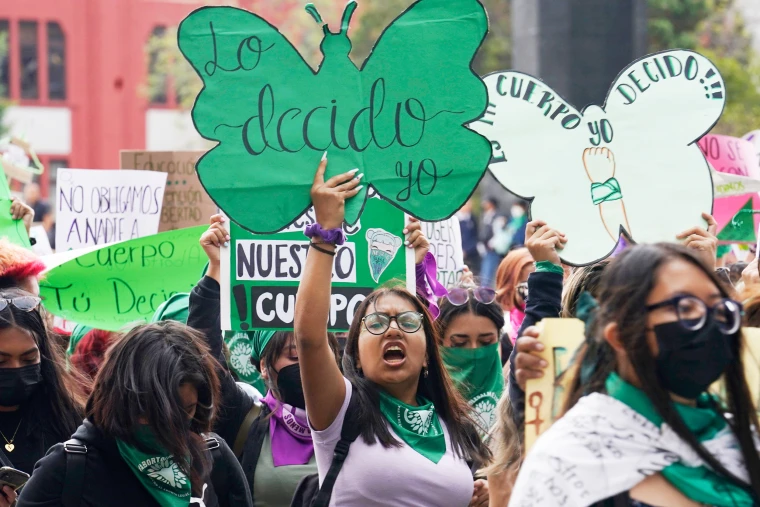Mexico’s Supreme Court Decriminalizes Abortion Nationwide

In a landmark ruling on September 7, 2023, Mexico’s Supreme Court unanimously voted to decriminalize abortion nationwide. The ruling overturns a 1973 law that prohibited abortion except in cases of rape, incest, or when the mother’s life was in danger.
The decision is a major victory for women’s rights advocates in Mexico, who have been fighting for decades to end the criminalization of abortion. The ruling also expected to have a significant impact on access to abortion services in Mexico, as it will no longer be a crime for doctors to provide abortions.

The Supreme Court’s ruling based on the right to privacy, which guaranteed by the Mexican Constitution. The court argued that the criminalization of abortion violates women’s right to make decisions about their own bodies.
The ruling is a major step forward for women’s rights in Mexico, but it is not the end of the fight. Abortion is still illegal in many parts of the country, and it is likely that there will be legal challenges to the Supreme Court’s ruling. However, the ruling is a sign of the progress that made in Mexico, and it is a victory for women’s rights advocates everywhere.
In the wake of the ruling, there have mixed reactions. Some people have celebrated the decision, while others have expressed concern about the potential impact on the Catholic Church and the country’s conservative social values.
It remains to be seen how the ruling will be implemented and what the long-term impact will be. However, it is clear that the Supreme Court’s decision is a major turning point in the fight for women’s rights in Mexico.
What does the ruling mean for women in Mexico?
The Supreme Court’s ruling means that abortion is now legal in Mexico City and in all 31 states of the country. This means that women will no longer prosecuted for having an abortion, and doctors will no longer penalized for providing abortion services.
The ruling is expected to have a significant impact on access to abortion services in Mexico. According to a 2021 survey, only 17% of women in Mexico have access to safe and legal abortion services. The Supreme Court’s ruling expected to make abortion more accessible to women in all parts of the country.
 The new ruling has been welcomed by women’s groups in Mexico (file image)
The new ruling has been welcomed by women’s groups in Mexico (file image)What are the challenges ahead?
Despite the Supreme Court’s ruling, abortion is still illegal in some parts of Mexico. In these areas, women may still face prosecution for having an abortion. Additionally, the Catholic Church has spoken out against the Supreme Court’s ruling, and it is possible that the church will challenge the ruling in court.
Another challenge is the lack of access to abortion services in some parts of Mexico. Even in areas where abortion is legal, there may not be enough doctors who are willing to provide abortion services. This is due to a number of factors, including religious beliefs and fear of legal repercussions.

What is the future of abortion rights in Mexico?
The Supreme Court’s ruling is a major victory for women’s rights in Mexico, but it is not the end of the fight. Abortion is still illegal in some parts of the country, and there are likely to be legal challenges to the Supreme Court’s ruling.
However, the ruling is a sign of the progress that made in Mexico, and it is a victory for women’s rights advocates everywhere. The future of abortion rights in Mexico is uncertain, but the Supreme Court’s ruling has put the issue front and center, and it is likely that the fight for abortion rights will continue.

- Art
- Causes
- Best Offers
- Crafts
- Dance
- Drinks
- Film
- Fitness
- Food
- Giochi
- Festival
- Gardening
- Health
- Home
- Literature
- Music
- Networking
- Altre informazioni
- Party
- Religion
- Shopping
- Sports
- Theater
- Wellness



